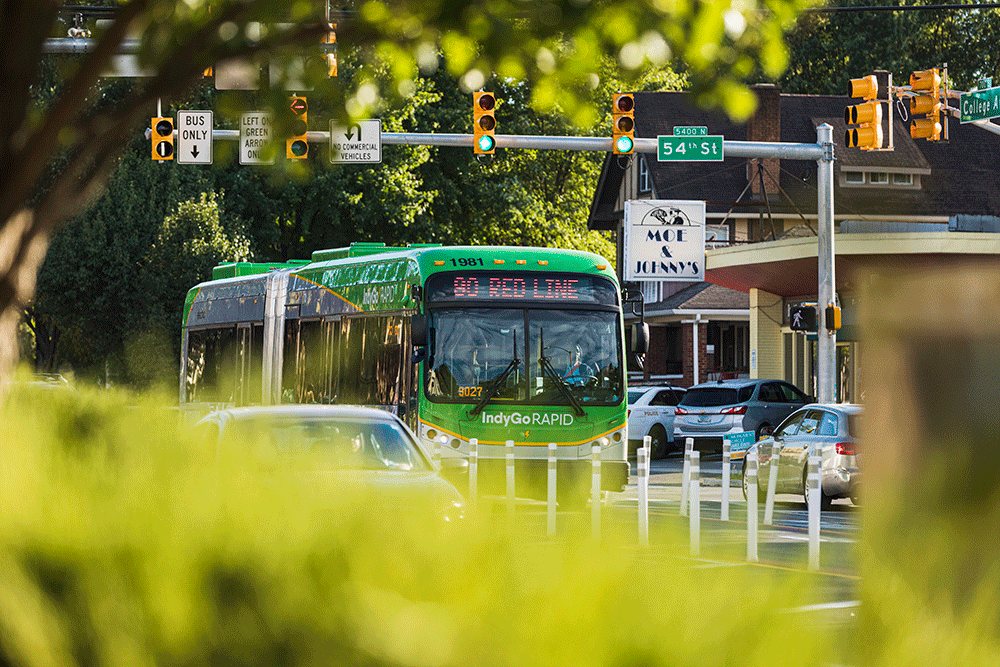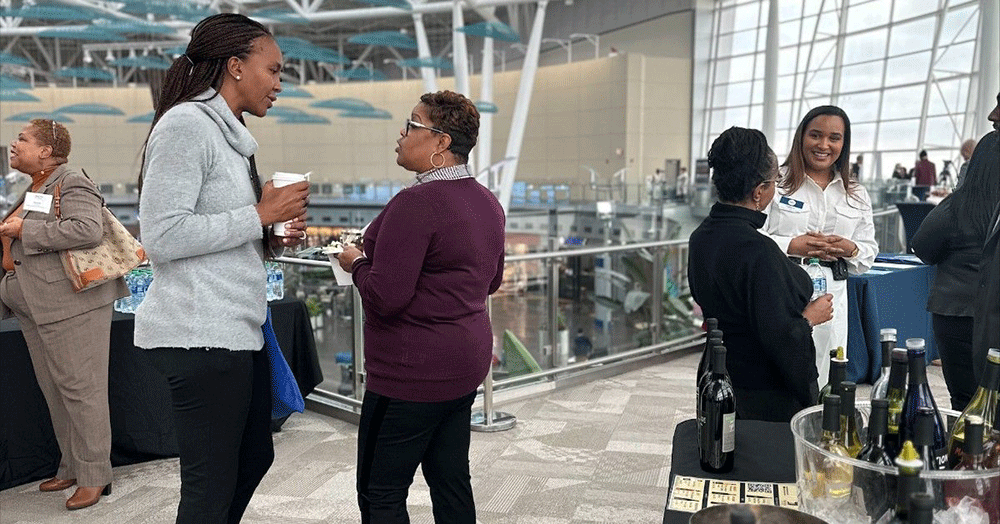Indianapolis, IN, Supports Workplace Diversity
Policy, people and procurement guide Indy’s path toward inclusive growth and workplace diversity.

As you can imagine, creating an economic development roadmap to advance job opportunities and remove barriers to employment for thousands of low-income residents living in a big city like Indianapolis, IN, is quite an undertaking. And it’s also one that involves a variety of community stakeholders who each have a specific role to play.
Taking the lead on this initiative, Develop Indy – the local economic development organization for the city and Marion County – joined forces with the Indy Chamber in 2019 to create an Inclusive Incentives Roadmap for Indianapolis. The initiative communicates stakeholder roles, encourages better participation by area businesses, and leads everyone down a path toward inclusive growth and economic mobility.
The Inclusive Incentives Roadmap aims to:
- Eliminate persistent racial disparities in access to jobs
- Leverage economic incentives to achieve broader community benefits
- Improve access to quality education
- Support workforce training programs
- Assist underinvested neighborhoods
- Increase access to support services
Today, the Indy Chamber reports that more than $600 million has been invested in Black-owned businesses to date, and there’s been a 45% year-over-year increase in the number of Indianapolis companies creating inclusion plans to help struggling middle- and low-income families improve their employment outlook.
With an economic development roadmap that focuses on developing policy, people and procurement to remove barriers and create more jobs that pay a living wage, the groups leading this initiative say it is making an impact on Indianapolis and guiding its future.
Ahead, learn more about the roadmap, whom it benefits, and what’s next for this evolving job growth project.

Inclusive Incentives Roadmap: How It Works
For many, the key to employment success lies in making the right connections with the right type of job, says Stacia Murphy, senior vice president of enterprise development for the Indy Chamber. Prior to the inclusive roadmap, Murphy says the city tried incentivizing large corporations to move here based on their ability to bring more jobs.
“But there was no real thought about what type of jobs they were bringing,” Murphy says. “Now, it’s about not only can we bring any large corporation here, but can we bring a corporation who really understands and wants to be a partner in this community?”
In exchange for tax abatement incentives, Indianapolis developers must now commit 5% of their estimated tax savings to workforce training, transportation improvements, child care, or housing projects that help remove barriers to employment and advance job opportunities.
“We had issues in certain communities where you may have a large employer on one side of the street and a bunch of people who need jobs on the other side of the street, and somehow, they just were not talking to each other,” Murphy says. “We need a much more connected ecosystem to help get people to jobs and jobs to people.”
Indy’s incentive program came about following a report issued by the Brookings Institution in 2017, which found that Indianapolis needed to fill gaps in its workforce and improve upward mobility. Murphy says one of the Brookings Institution recommendations was to only incentivize companies that paid a living wage of at least $18 per hour.
While working to fill those gaps, COVID-19 began spreading in early 2020, then racial riots and protests erupted in Indianapolis following the killing of George Floyd in Minneapolis.
“That just further gave us the need to pivot and really focus on those racial equities in a deeper way than we had ever done before,” Murphy says. “Then the corporate community reached out to the chamber and the Central Indiana Corporate Partnership (CICP) and said, ‘Hey, we know we need to be in this fight in a deeper way, but we’re not quite sure what to do. Can you help us?’”
In response, the chamber and CICP, along with the Indianapolis Urban League, formed Business Equity for Indy (BEI) to create greater economic opportunity for Black residents and residents of color.

Business Equity for Indy Spurs a More Inclusive Business Climate
Murphy and BEI Chairman Jeffrey Harrison say BEI focuses on three pillars to achieve racial equity:
- Policy – Working with the legislature to support policies that allow for racial equity versus blocking it.
- People – Creating a pipeline for a talented, diverse workforce.
- Procurement – Supporting and educating Black-owned businesses that seek to bid on projects and be part of corporate supply chains.
For people, it’s not only about job recruitment and skills training, but also supporting them on their way to higher achievement.
“How are we supporting them in their growth journey? How are we promoting them? Are we doing that in an equitable way?” Murphy says.
When it comes to procurement, how complicated is it for Black- or minority-owned businesses to bid on lucrative contracts in Indianapolis? Sometimes, it’s just a matter of awareness or connecting the right relationships.
“How can we make that on-ramp shorter? How can we create more of their social capital? How can we supply them with more access to capital to help bid on contracts? And then how can we work with the corporate community to change some of the ways they do business so it enables better relationship-building with small businesses?” Murphy says.
Harrison, who is also Citizens Energy Group’s president and CEO, says nearly 100 Indy companies now participate on various BEI task forces, and the group continues to grow. BEI even hosts a quarterly Procurement Roundtable, where minority businesses can connect with other companies to bid on specific projects.
“These minority businesses will present to the companies and see if we can make a match,” Harrison says. “Tell us a little bit about what you do. Let us understand what your client base looks like. What large projects might you be able to handle? Are you capable of scaling or not?” Harrison says. “The key here is, we’re looking for synergy. We’re looking at creating a synergistic effect across companies here in Central Indiana.”
And Citizens, which operates a wastewater and natural gas utility as well as a steam district and chilled water business in downtown Indy, leads by example with its BEI participation – committing $102 million to diverse supplier spend and 11,000 volunteer hours in 2022, alone.
“This is part of our racial equity pledge,” Harrison says. “It’s a commitment we’ve made to be a leader in supplier diversity here in Central Indiana.”
While Harrison believes the three pillars are making a difference to support workplace diversity, he says BEI seems to be gaining energy and traction within the procurement space to help minority businesses improve and grow.
“It’s about sustainability. This whole initiative, this whole effort has got to be sustainable.”
Jeffrey Harrison, BEI
Building a Sustainable Future for Workplace Diversity
As one of the first companies to present at BEI’s Procurement Roundtable, FrontRunner Media, a Black-owned full service media production company, was able to garner enough support to create a nonprofit to continue its work of training young people in the art of digital content production.
Called the Next Generation Initiative, the nonprofit provides young people interested in pursuing a career in digital media with hands-on training as content directors, technical directors, graphic operators, instant-replay operators, audio operators, behind-the-camera operators and TV announcers.
“We’re always looking for support, especially for the Next Generation Initiative,” says FrontRunner Media President Gary Naylor. “We’re looking for organizations that believe in the mission of training and educating young people in a field that definitely doesn’t have a lot of black and brown kids. Today, we have close to 70 kids who have gone through our program and are now working in the industry. Being part of BEI has definitely given us a platform to gain some visibility.”
In a nutshell, that is what the Inclusive Incentives Roadmap and BEI are all about – empowering and giving voices to those less privileged through jobs programs and support services that work in tandem toward a common goal.
“I’m surprised by how much is offered and how few people know about it,” says Aletha Dunston, the Indy Chamber’s director of Indianapolis Economic Development (Develop Indy) and an American Institute Certified Planner. “My primary goal is to make sure we amplify the message of all of the things we offer here.”
This article was sponsored by Life in Indy.
